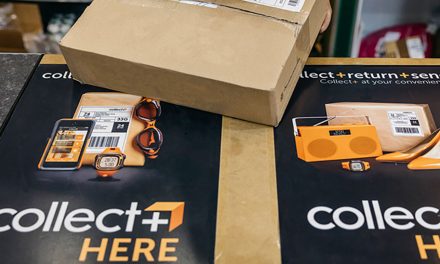
eRetailers: Stand up and deliver
Mark Astbury, general manager of Collect+, looks at the impact on brand loyalty and how crucial delivery and returns are in the online shopping experience. As the web increasingly becomes the default reference source and ecommerce establishes itself as a core component of modern shopping habits, consumer expectations of choice and convenience have risen to unprecedented highs. Retailers have had to come up with ever more innovative ways of making the user journey as fluid and effortless as possible.
Highly interactive, content-rich websites offer customers an immersive experience, often incorporating social media to enhance engagement and brand loyalty. Unless this innovation is extended to the fulfillment process, retailers risk undoing all of their hard work.
In ecommerce, delivery is the final mile of any online journey, when the virtual transaction becomes real, and is vital to satisfying and retaining hard-won customers. Returns present a chance for retailers to show how much they value customers by solving problems quickly and helpfully.
A successful delivery or a hassle-free return may not be something customers shout about, but a bad experience certainly will be. Despite the risks, fulfillment remains low down the list of priorities for many retailers, even as they rush to enter the buzzing playgrounds of Twitter and Facebook.
Of course, the cost of delivery is often a crucial factor in a customer’s decision to purchase an item, so it’s vital that charges are easy for users to find. But, is ecommerce being undermined by the assumption that consumers can afford to stay at home all day waiting for a delivery?
The scale of the issues was highlighted in recent research from IMRG, the industry body for online retail, which showed that more than one in ten deliveries fail first time and the overall cost of missed deliveries is almost £1bn per year[1]. The research also revealed that the average trip to a parcel depot to collect a missed parcel is almost 8 miles[2] and this will be compounded if one third of post offices are forced to close over the next two years[3]. Even more telling is the impact that failed deliveries are having on brand loyalty, with 38% of consumers claiming to have been put off a retailer as a result of a poor delivery.[4]
Retailers need to work harder to fit in with their customers’ busy lifestyles, so offering a range of delivery and returns options is essential. Couriers have innovated with timed and weekend delivery slots, improved tracking and SMS alerts. Click & Collect and ‘buy online, return in-store’ options have been hugely successful for brands such as Argos and Halfords and now new services allow all retailers – even pureplay online businesses – to offer their customers this convenience and freedom from delivery times.
What happens in this last mile is becoming business critical and, unless addressed, may undo the hard work online and multi-channel retailers put in to developing deeper relationships with their precious customer base.
As competition for customers continues, businesses and retailers are attempting to integrate their internal multi-channel operations to provide a seamless and consistent customer experience. They will increasingly realise that ‘CCD’, or customer centric delivery, has a pivotal role in keeping customers happy.
[1] Valuing Home Delivery 2010; e-Retail Industry Review – February 2010
[2] Consumer Delivery Survey 2010: e-Retail Industry Review – February 2010
[4] Consumer Delivery Survey 2010: e-Retail Industry Review – February 2010














This issue would be resolved if the customer and or retailer is prepared to pay the real costs associated with home deliveries. How much are they prepared to pay for the convenience of home delivery?